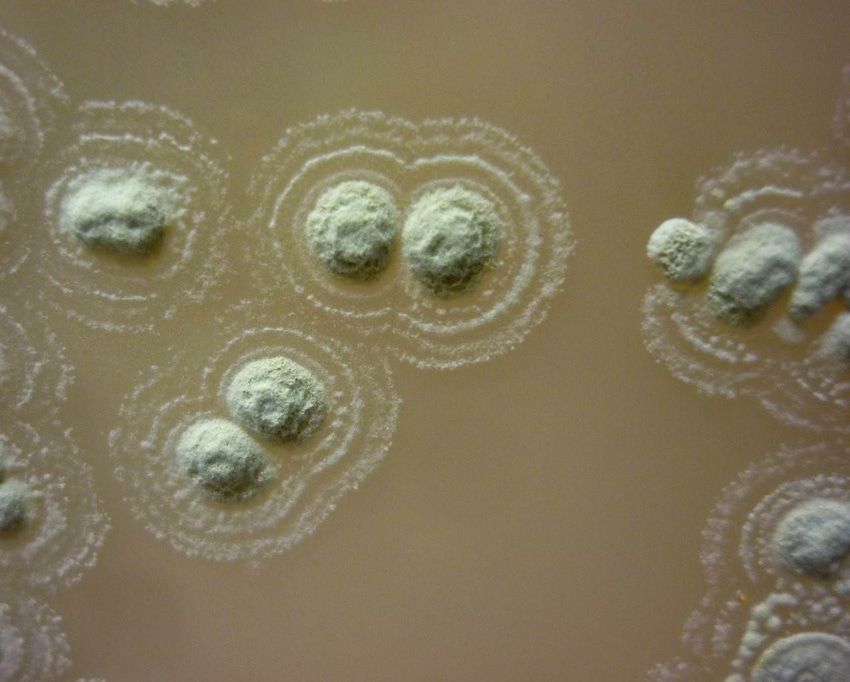Newly discovered bacteria halts growth of antibiotic-resistant microbes
Research team now working on identifying and purifying antimicrobial substances from new species of Streptomyces.
December 27, 2018

Researchers analyzing soil from Ireland long thought to have medicinal properties have discovered that it contains a previously unknown strain of bacteria that is effective against four of the top-six "superbugs" resistant to antibiotics, including methicillin-resistant Staphylococcus aureus (MRSA).
The new strain of bacteria was discovered by a team based in Swansea University Medical School in Wales made up of researchers from Wales, Brazil, Iraq and Northern Ireland. They have named the new strain Streptomyces sp. myrophorea.
According to the announcement from Swansea University, the soil the team analyzed originated from an area of Fermanagh, Northern Ireland, known as the Boho Highlands. It is an area of alkaline grassland, and the soil is reputed to have healing properties.
The search for replacement antibiotics to combat multi-drug resistance has prompted researchers to explore new sources, including folk medicines -- a field of study known as ethnopharmacology, Swansea said. They are also focusing on environments where well-known antibiotic producers like Streptomyces can be found.
"This new strain of bacteria is effective against four of the top six pathogens that are resistant to antibiotics, including MRSA. Our discovery is an important step forward in the fight against antibiotic resistance," professor Paul Dyson of Swansea University Medical School said.
"Our results show that folklore and traditional medicines are worth investigating in the search for new antibiotics. Scientists, historians and archaeologists can all have something to contribute to this task. It seems that part of the answer to this very modern problem might lie in the wisdom of the past.”
The main findings of the research were that the newly identified strain of Streptomyces:
* Inhibited the growth of four of the top six multi-drug-resistant pathogens identified by the World Health Organization as being responsible for health care-associated infections, including vancomycin-resistant Enterococcus faecium, MRSA, Klebsiella pneumonia and carbenepenem-resistant Acinetobacter baumanii, and
* Inhibited both Gram-positive and Gram-negative bacteria, which differ in the structure of their cell wall, with Gram-negative bacteria usually being more resistant to antibiotics.
It is not yet clear which component of the new strain prevents the growth of the pathogens, but the team is investigating this, the university said.
Dr. Gerry Quinn from the research team added, “The discovery of antimicrobial substances from Streptomyces sp. myrophorea will help in our search for new drugs to treat multi-[drug]-resistant bacteria, the cause of many dangerous and lethal infections. We will now concentrate on the purification and identification of these antibiotics. We have also discovered additional antibacterial organisms from the same soil cure, which may cover a broader spectrum of multi-[drug]-resistant pathogens."
The research was published in Frontiers in Microbiology.
You May Also Like


